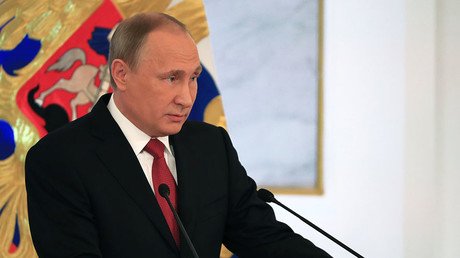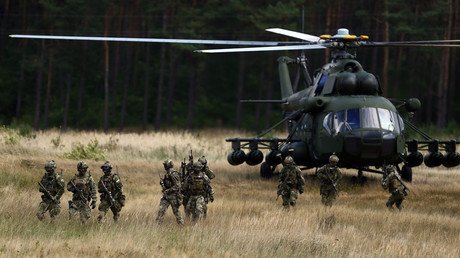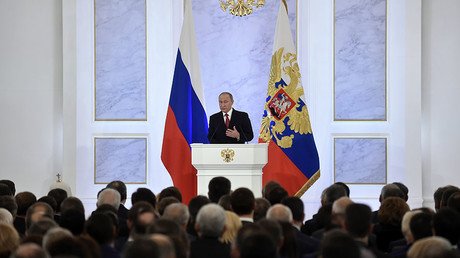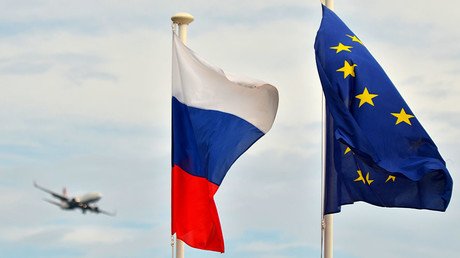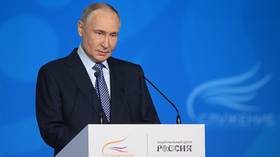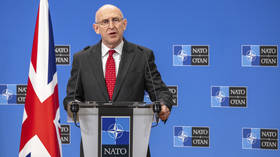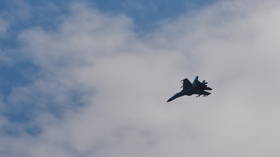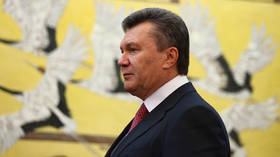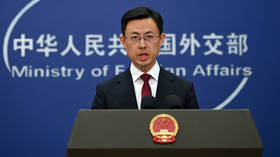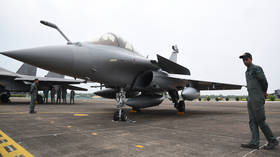Russia sets out its policy on terrorism, nuclear war & global ties in new Foreign Policy Concept
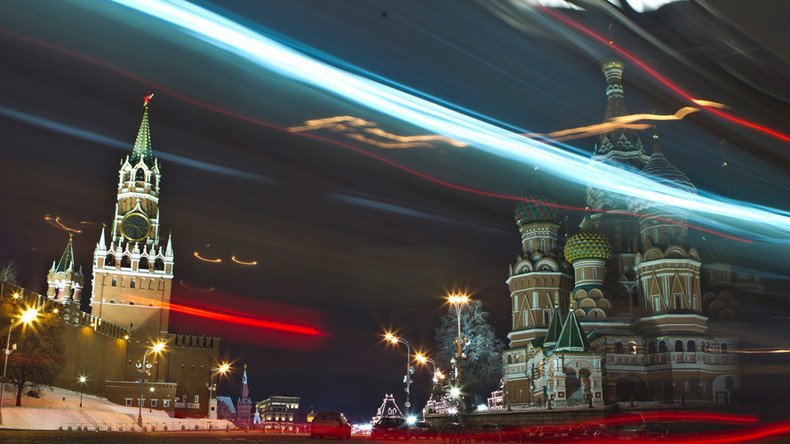
President Vladimir Putin has signed a decree approving Russia's new Foreign Policy Concept. The document specifies Moscow's position on key global issues, highlighting its relations with the US, EU, China and other countries.
Published on Thursday, the concept is now in force, replacing the previous one from 2013. Moscow's "views on core principles, priority directions, aims and tasks of the Russian foreign policy" are stated in the document of almost 40 pages.
Saying that Russia pursues an independent foreign policy based both on national interests and respect for international law, the concept states that Moscow's policy is "open, foreseeable" and "shaped by centuries" of Russia's historic role in the development of global civilization.
"Russia is fully aware of its special responsibility for maintaining security in the world both on global and regional levels, and is aimed at cooperative actions with all concerned states in the interest to solve common issues," the document says.
READ MORE: EU will maintain Russia policies, even if US changes course – Mogherini
Moscow calls for "creation of a broad international anti-terrorist coalition, firmly based on a legal framework, and effective and systematic cooperation among states," the document says. No "double standards" should have a place in such a coalition, which should become the main force to fight global terrorism.
Nuclear war hazard low, but US missile shield threatens Russia's national security
Moscow stands for the creation of "zones free of nuclear weapons and other types of weapons of mass destruction, especially in the Middle East," the concept states, adding that "fighting international terrorism is key priority in international security."
No country should use terrorist organizations to pursue its "political, ideological and other aims," it says. Political and legal framework for nuclear and other weapons nonproliferation course is key, to avoid risks of such weapons landing in the hands of terrorist organizations.
Russia stays true to its international obligations in the arms control, and expects the same from its partners. Washington's development of its global missile defense system is viewed as a "threat to national security," with Moscow "reserving the right to take relevant counter measures."
"Russia stands for constructive cooperation with the US in the field of arms control, with a compulsory allowance for an inseparable correlation between strategic offensive and defense weapons," the document says. Global strategic stability should be the key factor in possible further arms reduction, it adds.
READ MORE: NATO war with Russia ‘not likely’ in 2017, UK Defence Secretary says
"Despite [the fact] that a threat of a large-scale war, including nuclear war, initiated between key states remains low, risks that [such states] may be involved in regional crisis, escalating them, are growing," the new Foreign Policy Concept warns.
Russia-US dialogue possible, but only if US abandons its 'restraining' course
Washington and its allies have been pursuing a "restraining course" against Russia, aiming to "pressure" it both politically and economically, the document says, adding that such policy "undermines regional and global security." It also harms long-term interests of both sides, and goes against a "growing necessity for cooperation" and joint counteraction to global threats.
Russia reserves the right to "harsh" retaliatory measures to "unfriendly actions," including measures in toughening its national defense.
Moscow "is interested in building mutually beneficial relations with the US, taking into consideration the two countries' responsibility for global strategic stability and the state of international security in general," the concept stresses, adding that the two nations have significant opportunities in trade, investment, scientific and other forms of cooperation.
READ MORE: Lavrov: US will have to negotiate with Russia, can’t act alone on global issues
The development of dialogue on bilateral relations, as well as on other international issues "is only possible if based on equality, mutual respect and non-interference in one another's internal affairs."
In regard to contacts with NATO, Moscow plans to build its relations with the alliance based on its eagerness to be engaged in equal partnership. So far, Russia negatively regards NATO's expansion, with its military infrastructure getting closer to the Russian borders. Such actions are considered as "defying the principle of equal security" and might cause new "division lines in Europe."
READ MORE: NATO should be acting as a bridge between Baltics & Russia, defuse tension – UK Tory MP
Meanwhile, Moscow praises the role of the United Nations in "regulating international relations and coordinating world policies," saying that there are no other options to replace the organization in the 21st century.
Relations with EU among Moscow's priorities, abolishing visa regime will strengthen ties
Stepping-up mutually beneficial bilateral ties with European countries is named among one of Russia's key priorities in the new Foreign Policy Concept.
The EU is Russia's important trade and economic partner, the document says, adding that Moscow also regards Europe as its associate in foreign policy and is looking for "stable cooperation" based on mutual respect. Relations with Germany, France, Italy and Spain are mentioned as being key for the Kremlin in promoting its interests on the international arena.
"The strategic task in relations with the EU is forming a broad economic and humanitarian space from the Atlantic to the Pacific Ocean," that will unite and "harmonize" the European continent, the concept says.
"The visa regime remains one of the main barriers in the way of development of contacts between Russia and the EU. The gradual cancellation of the visa regime on a reciprocal basis will become a powerful impulse for strengthening cooperation between Russia and the EU in economic, humanitarian, cultural, educational and other spheres," the document says.
Russia to strengthen ties with the East, presence in the Antarctic
Among other Moscow's foreign policy priorities, the concept mentions developing further relations with its eastern neighbors. "Full-scale" partnership and cooperation with China is on the agenda, as well as "further deepening" of strategic partnership with India. With the latter, Russia has always had "privileged" relations, according to the document, which says that the two nations' cooperation is based on corresponding foreign policies, "historic friendship and deep mutual trust."
Japan and other countries in the Asia-Pacific Region are also mentioned as important partners to work with in the near future.
"Russia will also continue its work on preserving and widening its presence in the Antarctic," the concept states, adding that Moscow is as well "open for building relations with Canada" to cooperate in the Arctic and other regions.
Russia's position on Syria is also mentioned in the new Foreign Policy Concept, with Moscow standing for the Middle Eastern country's "unity, independence and territorial integrity." Representatives of all ethnic and religious groups in Syria should be provided with equal security and peace, and enjoy "equal rights and opportunities," the document says.
